Washington County > Coronavirus Information > COVID-19 Vaccine Information
Share |
Washington County COVID-19 Vaccine Information
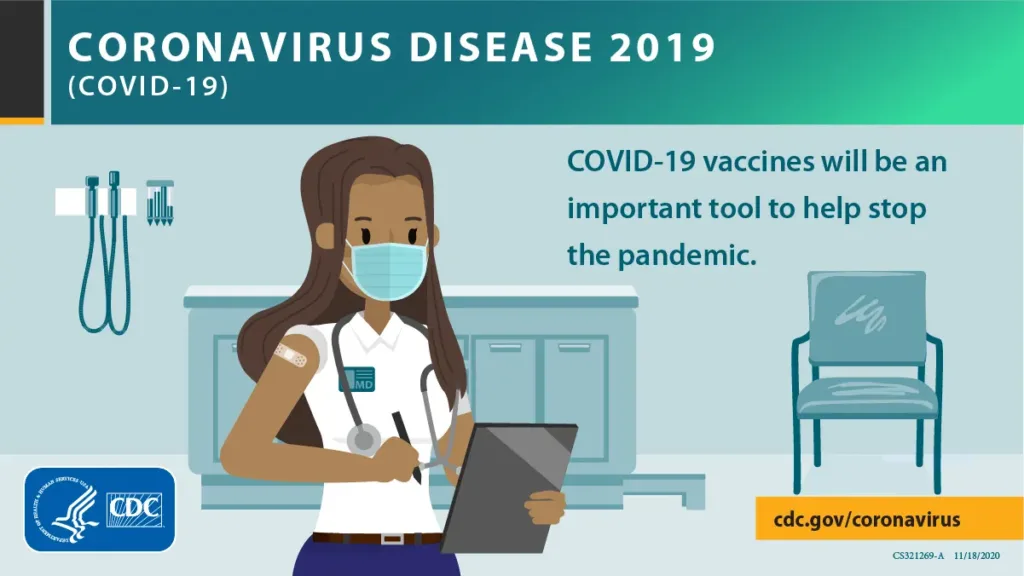
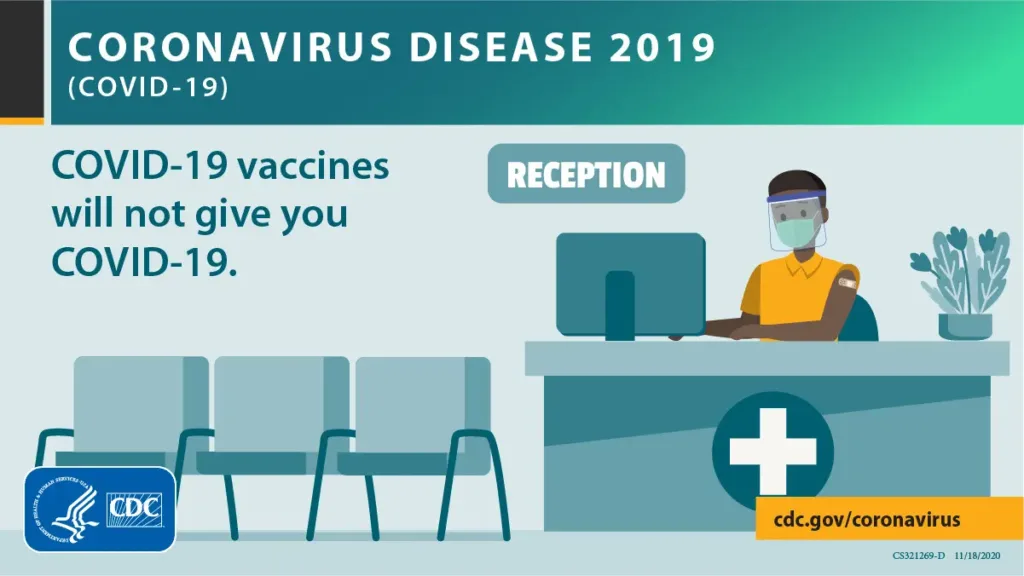
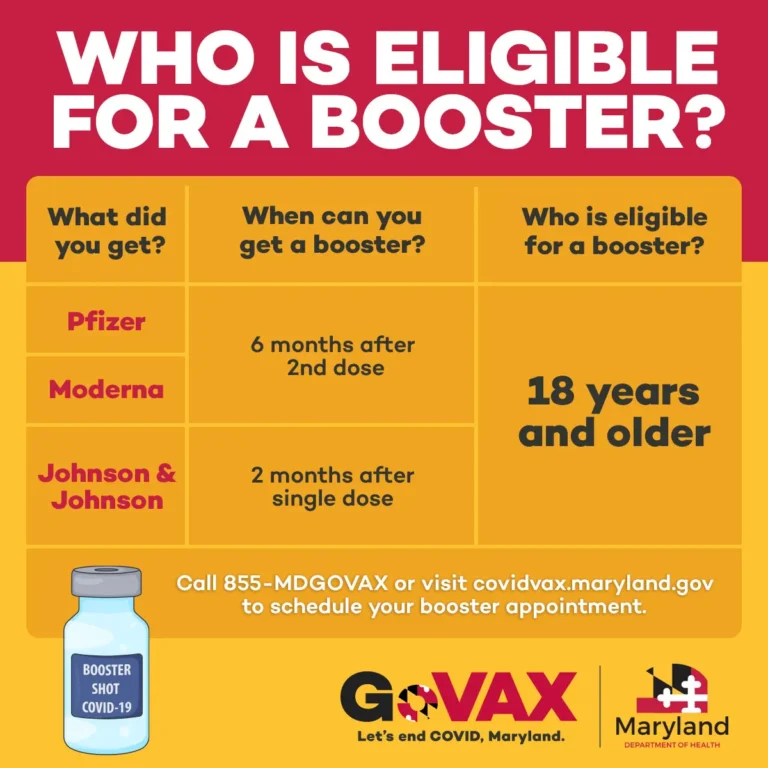
Phase 3: General population, including healthy adults ages 12+.
How & Where can I get the vaccine?
Will I have to pay for the COVID-19 Vaccine?
Vaccine doses purchased with U.S. taxpayer dollars will be given to people at no cost. However, vaccination providers will be able to charge an administration fee for giving the shot to someone and medical insurance will be billed.
Who Should NOT get vaccinated:
- If you are within the 10 day quarantine/ isolation date.
- If you had a positive COVID-19 test within the last 90 days, it is recommend to wait.
- If you had a positive COVID test and received monoclonal antibody or convalescent plasma, you will be required to wait 90 days from the day of your treatment.
- If you have had a severe allergic reaction (anaphylaxis) or an immediate allergic reaction—even if it was not severe—to any ingredient in an mRNA COVID-19 vaccine, you should not get an mRNA COVID-19 vaccine.*
- If you have had a severe allergic reaction (anaphylaxis) or an immediate allergic reaction—even if it was not severe—after getting the first dose of the vaccine, you should not get another dose of an mRNA COVID-19 vaccine.*
- An immediate allergic reaction means a reaction within 4 hours of getting vaccinated, including symptoms such as hives, swelling, or wheezing (respiratory distress).
- This includes allergic reactions to polyethylene glycol (PEG) and polysorbate. Polysorbate is not an ingredient in either mRNA COVID-19 vaccine but is closely related to PEG, which is in the vaccines. People who are allergic to PEG or polysorbate should not get an mRNA COVID-19 vaccine.
Learn more about COVID-19 vaccines and allergic reactions.
*If you have had an immediate allergic reaction—even if the reaction was not severe—to a vaccine or injectable therapy for another disease, ask your doctor if you should get a COVID-19 vaccine. Your doctor will help you decide if it is safe for you to get vaccinated.
Why should you get the vaccine?
Protective: It helps to protect you from having symptomatic Covid-19 and when most of us have been immunized it will bring an end to the Covid-19 pandemic in Maryland
Promising results: Early clinical trials show the vaccines are highly effective in preventing serious illness.
Pandemic Ending: These vaccines are the path forward to ending the COVID-19 pandemic.
Minimal Side Effects: Most of the participants in clinical trials had minimal side effects. The most common were soreness at injection site, fever, or body aches.
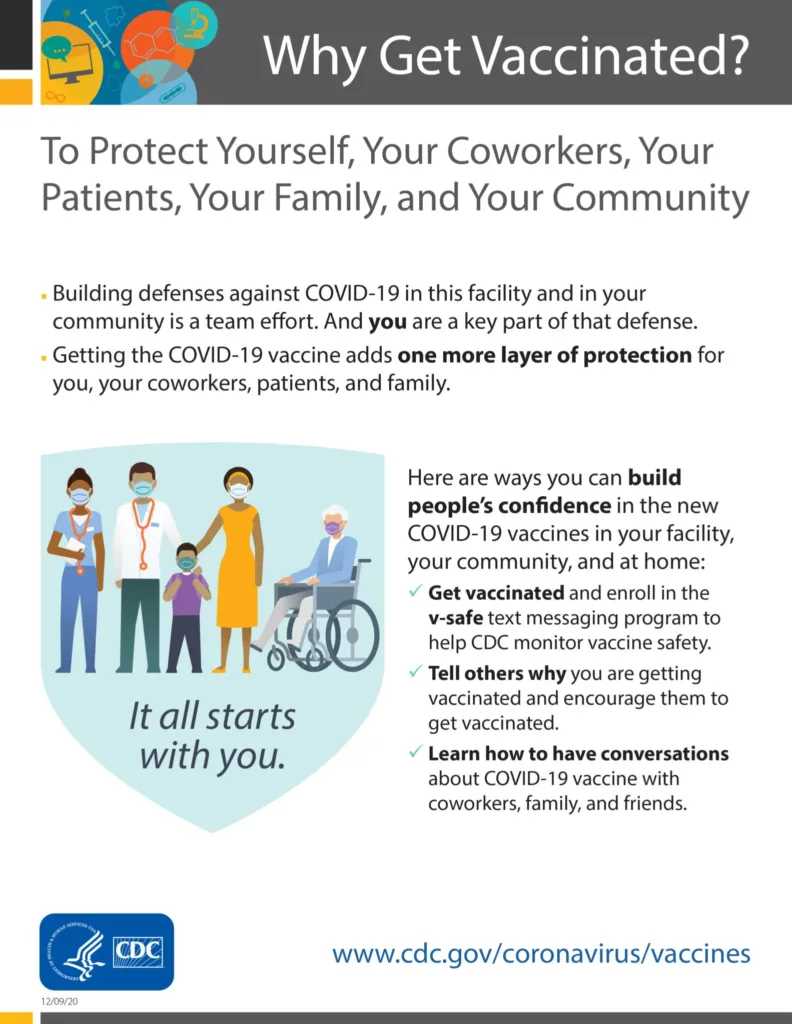
What are the vaccines?
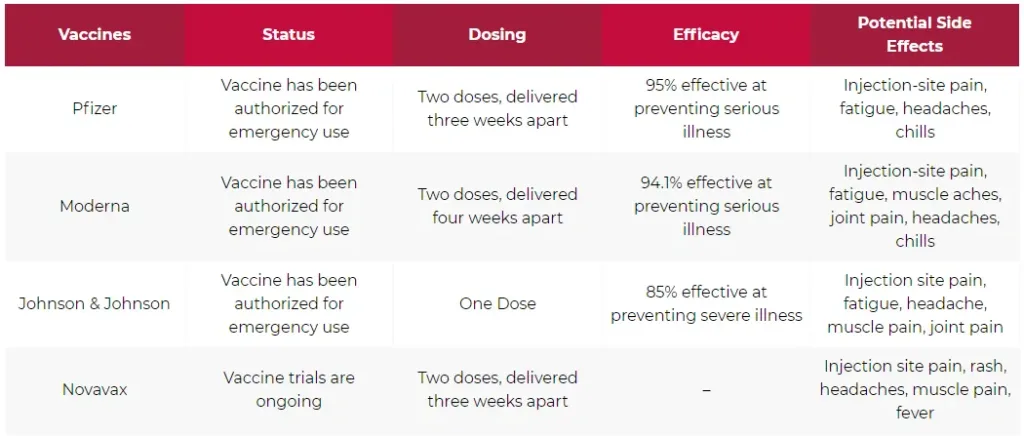
Facts about COVID-19 mRNA Vaccines
Messenger RNA vaccines—also called mRNA vaccines—are some of the first COVID-19 vaccines authorized for use in the United States.
They cannot give someone COVID-19.
- mRNA vaccines do not use the live virus that causes COVID-19.
They do not affect or interact with our DNA in any way.
- mRNA never enters the nucleus of the cell, which is where our DNA (genetic material) is kept.
- The cell breaks down and gets rid of the mRNA soon after it is finished using the instructions.
New Approach to Vaccines
- mRNA vaccines are a new type of vaccine to protect against infectious diseases. To trigger an immune response, many vaccines put a weakened or inactivated germ into our bodies. Not mRNA vaccines. Instead, they teach our cells how to make a protein—or even just a piece of a protein—that triggers an immune response inside our bodies. That immune response, which produces antibodies, is what protects us from getting infected if the real virus enters our bodies.
A Closer Look at How COVID-19 mRNA Vaccines Work
- COVID-19 mRNA vaccines give instructions for our cells to make a harmless piece of what is called the “spike protein.” The spike protein is found on the surface of the virus that causes COVID-19.
- COVID-19 mRNA vaccines are given in the upper arm muscle. Once the instructions (mRNA) are inside the immune cells, the cells use them to make the protein piece. After the protein piece is made, the cell breaks down the instructions and gets rid of them.
- Next, the cell displays the protein piece on its surface. Our immune systems recognize that the protein doesn’t belong there and begin building an immune response and making antibodies, like what happens in natural infection against COVID-19.
- At the end of the process, our bodies have learned how to protect against future infection. The benefit of mRNA vaccines, like all vaccines, is those vaccinated gain this protection without ever having to risk the serious consequences of getting sick with COVID-19.
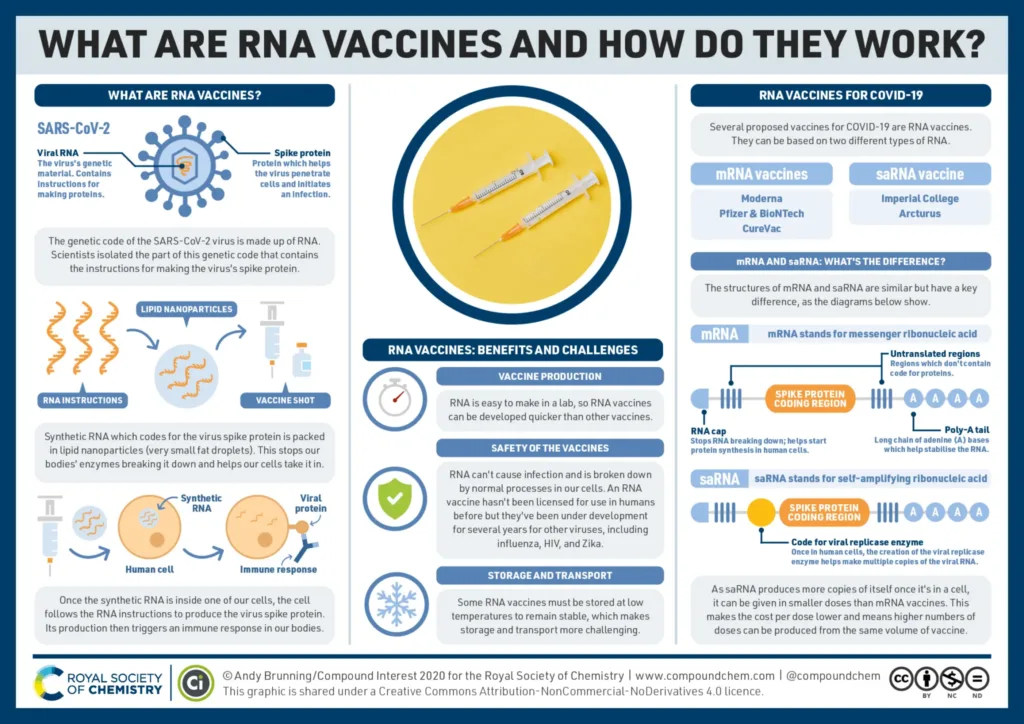
What to do when you receive the vaccine
Vaccines are an important tool in the continued fight against COVID-19. Getting vaccinated is one of many steps you can take to protect yourself and others from COVID-19. Protection from COVID-19 is critically important because for some people, it can cause severe illness or death.
You may have some side effects, which are normal signs that your body is building protection. These side effects may affect your ability to do daily activities, but they should go away in a few days.
Common side effects (on the arm where you got the shot):
- Pain
- Swelling
Throughout the rest of your body:
- Fever
- Chills
- Tiredness
- Headache
When to call the doctor:
In most cases, discomfort from fever or pain is normal. Contact your doctor or healthcare provider:
- If the redness or tenderness where you got the shot increases after 24 hours
- If your side effects are worrying you or do not seem to be going away after a few days
If you get a COVID-19 vaccine and you think you might be having a severe allergic reaction after leaving the vaccination site, seek immediate medical care by calling 911. Learn more about COVID-19 vaccines and rare severe allergic reactions.
Remember
- Side effects may feel like flu and even affect your ability to do daily activities, but they should go away in a few days.
- With most COVID-19 vaccines, you will need 2 shots in order for them to work. Get the second shot even if you have side effects after the first shot, unless a vaccination provider or your doctor tells you not to get a second shot.
- It takes time for your body to build protection after any vaccination. COVID-19 vaccines that require 2 shots may not protect you until a week or two after your second shot.
- It is possible that you can still transmit COVID-19 to other people after you have been vaccinated. We all need to continue wearing masks and social distancing.
- When you get vaccinated, you help to protect vulnerable people you care about. As greater numbers of people are vaccinated, we will achieve “herd immunity” that will greatly reduce cases of serious illness and death from COVID-19.
Keep On:
It’s important for everyone to continue using all the tools available to help stop this pandemic. After receiving the vaccine it is important to keep on:
- Avoiding crowds
- Wearing a mask
- Maintaining a distance of 6 feet from others
- Washing your hands
- Cleaning high-touched surfaces
Reporting Vaccine Side Effects
Use your smartphone to tell CDC about any side effects after getting the COVID-19 vaccine. You’ll also get reminders if you need a second vaccine dose: https://www.cdc.gov/coronavirus/2019-ncov/vaccines/safety/vsafe.html
FAQs & Additional Information
- Sign up for 211 alerts by texting “MdReady” to 898-211

